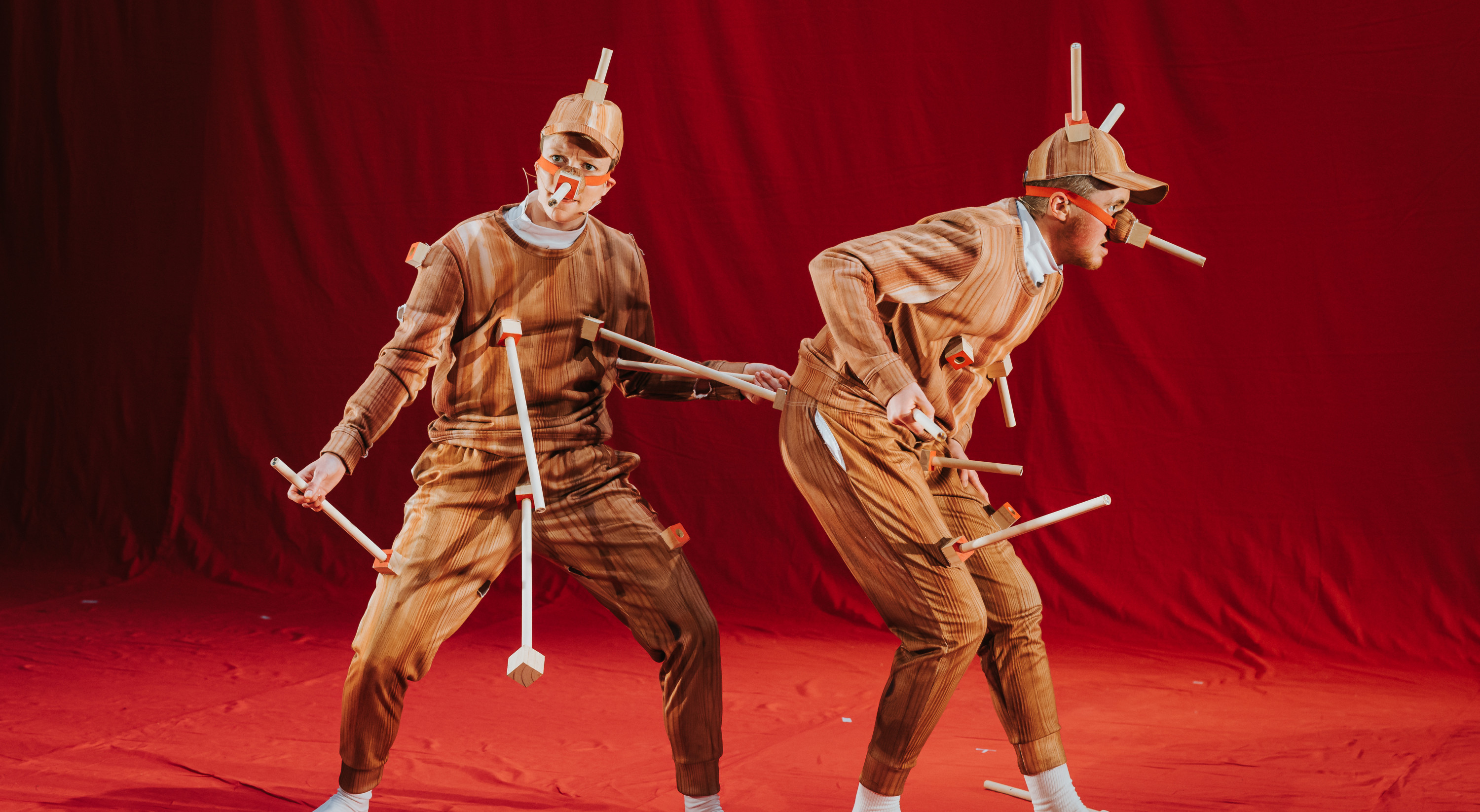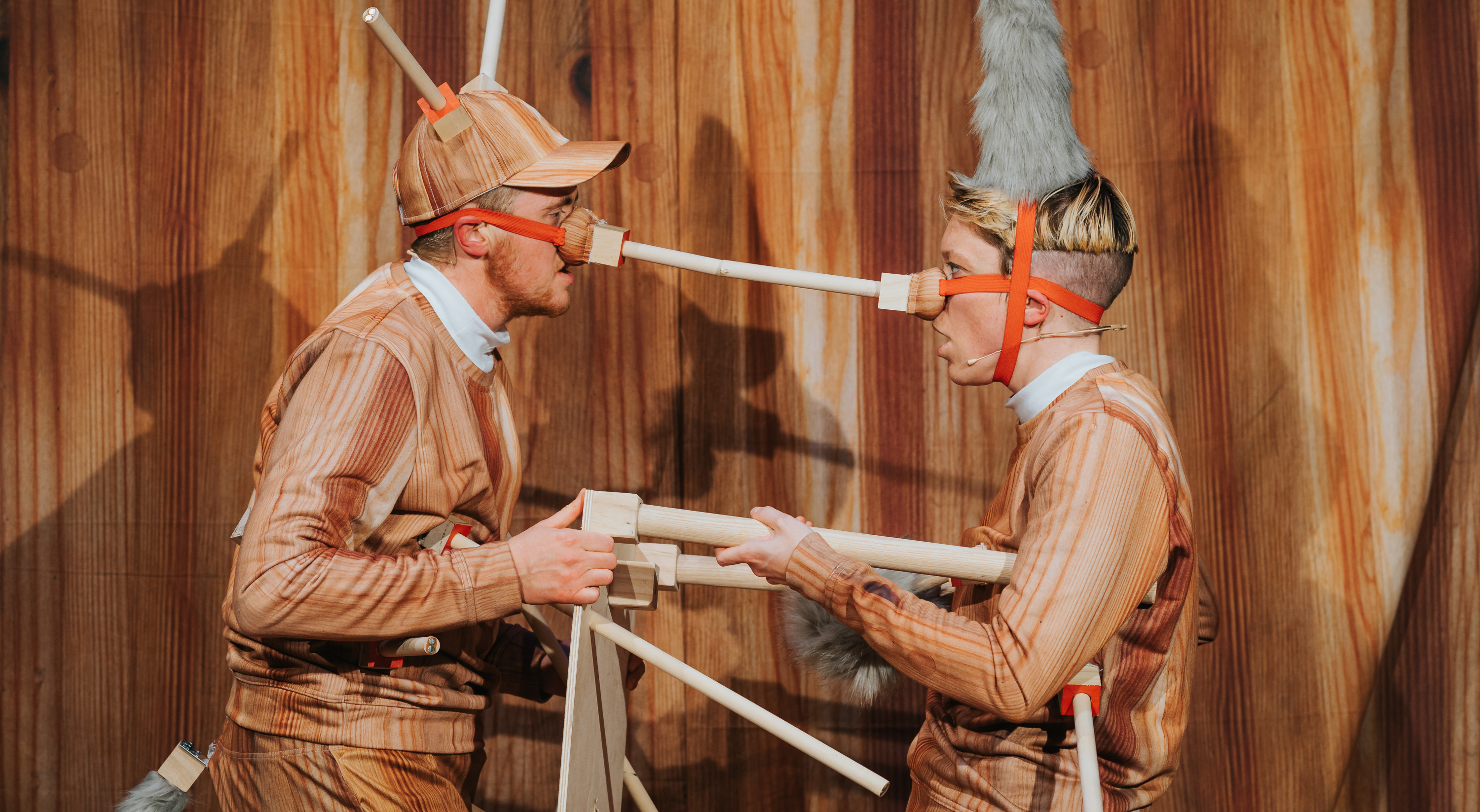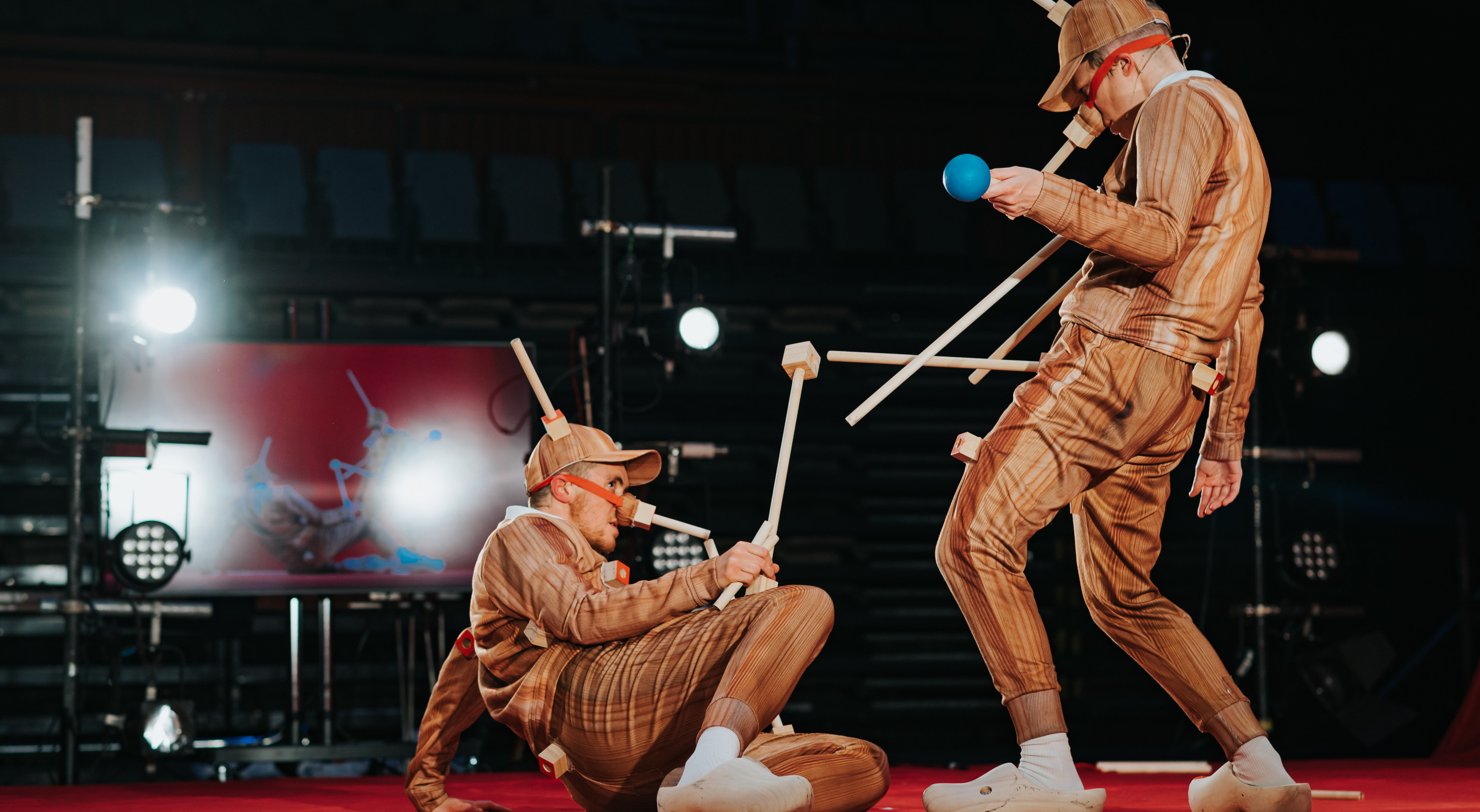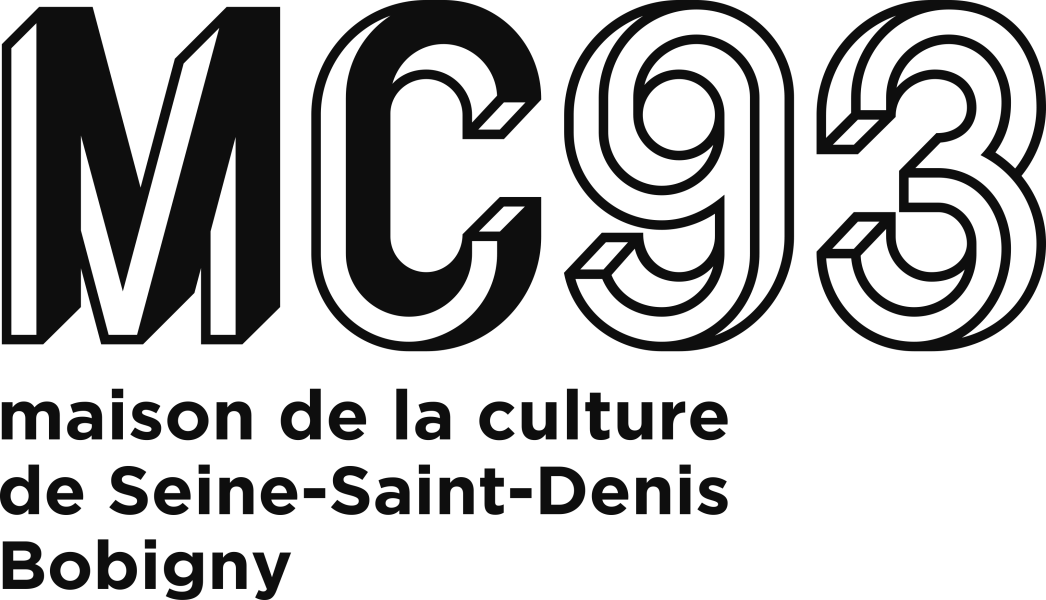Rosana Cade, Ivor MacAskill
The Making of Pinocchio
novembernov 22 – 30
Design and direction Rosana Cade, Ivor MacAskill. With Rosana Cade, Ivor MacAskill, Moa Johansson, Tim Spooner. Set, props and costumes Tim Spooner. Sound design Yas Clarke. Lighting design Jo Palmer. Camera Moa Johansson. Stage Manager Sorcha Stott-Strzala. Sound and lighting manager PJ Davy. Video Kirstin McMahon, Jo Hellier. Assistant Director Tim Spooner. Outside view Nic Green. Movement Consultant Eleanor Perry. Subtitles Collective Text, Rosana Cade, Ivor MacAskill, Jamie Rea. Subtitle design Yas Clarke. Head of the company Ray Gammon.
Production, Dr. Nora Laraki, Mary Osborn – Artsadmin
Commissioned by Fierce Festival (Birmingham) ; Kampnagel International Sommerfestival-Kampnagel (Hambourg) ; Tramway (Glasgow) ; Kunstencentrum VIERNULVIER vzw (Gand)
With the support of Attenborough Centre for the Creative Arts (Brighton) ; Battersea Arts Centre (London) ; LIFT (London) ; Take Me Somewhere (Glasgow) ; Creative Scotland ; Arts Council England ; Rudolf Augstein Stiftung
Support for development The Work Room – Diane Torr Bursary (Glasgow) ; Scottish Sculpture Workshop (Aberdeen) ; National Theatre of Scotland (Glasgow) ; Live Art Development Agency (Londres) ; Gessnerallee (Zurich) ; Künstlerhaus Mousonturm (Francfort) ; Forest Fringe ; West Kowloon Cultural District (Hong Kong) ; LGBT Health & Wellbeing Scotland (Glasgow)
Supported by the British Council as part of the UK/France Spotlight on Culture 2024 Imagining Together programme
The MC93 – Maison de la culture de Seine-Saint-Denis and the Festival d’Automne à Paris present this show in co-realisation.
Drawing upon Collodi's tale, the Cade-MacAskill duo uses theatre to investigate the little- explored realms of queer love and affection. In doing so, they tell the story of gender transition and its repercussions on the couple. The piece itself, The Making of Pinocchio, becomes a burlesque-inspired manifesto for different forms currently under construction.
Even though the green background has been replaced by red velvet, it is of course on a film set that Ivor MacAskill and Rosana Cade play out the different scenes, embodying different versions of Pinocchio and Gepetto. Above them, a screen enlarges and shrinks their silhouettes, thereby reaffirming, in the eyes of Judith Butler, the extent to which gender is a question of performance. Here, the story of the puppet who dreamt of being a boy becomes a metaphor for the transition that MacAskill initiated in 2018. Within a couple, when one partner relinquishes their feminine identity in order to go through the process of becoming a man, undertaking a series of social, bodily and administrative changes in the process, the other person might see their own patterns of thought being thrown into disarray. From out of the mock film-set staging of this very personal story, a festive and libertarian disorder emerges. But it is not so much about taking an indiscreet peek at the intimate details of a person's life story. On the contrary, the show is about the invention of a form with which to express fluidity in general. “We'll never manage to finish the piece,” the couple finally admits. Which just about sums up its magic formula: the unfinished as an aesthetic and ethical model.
In the same place




